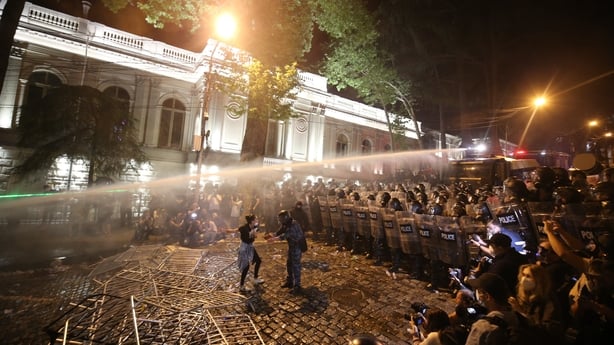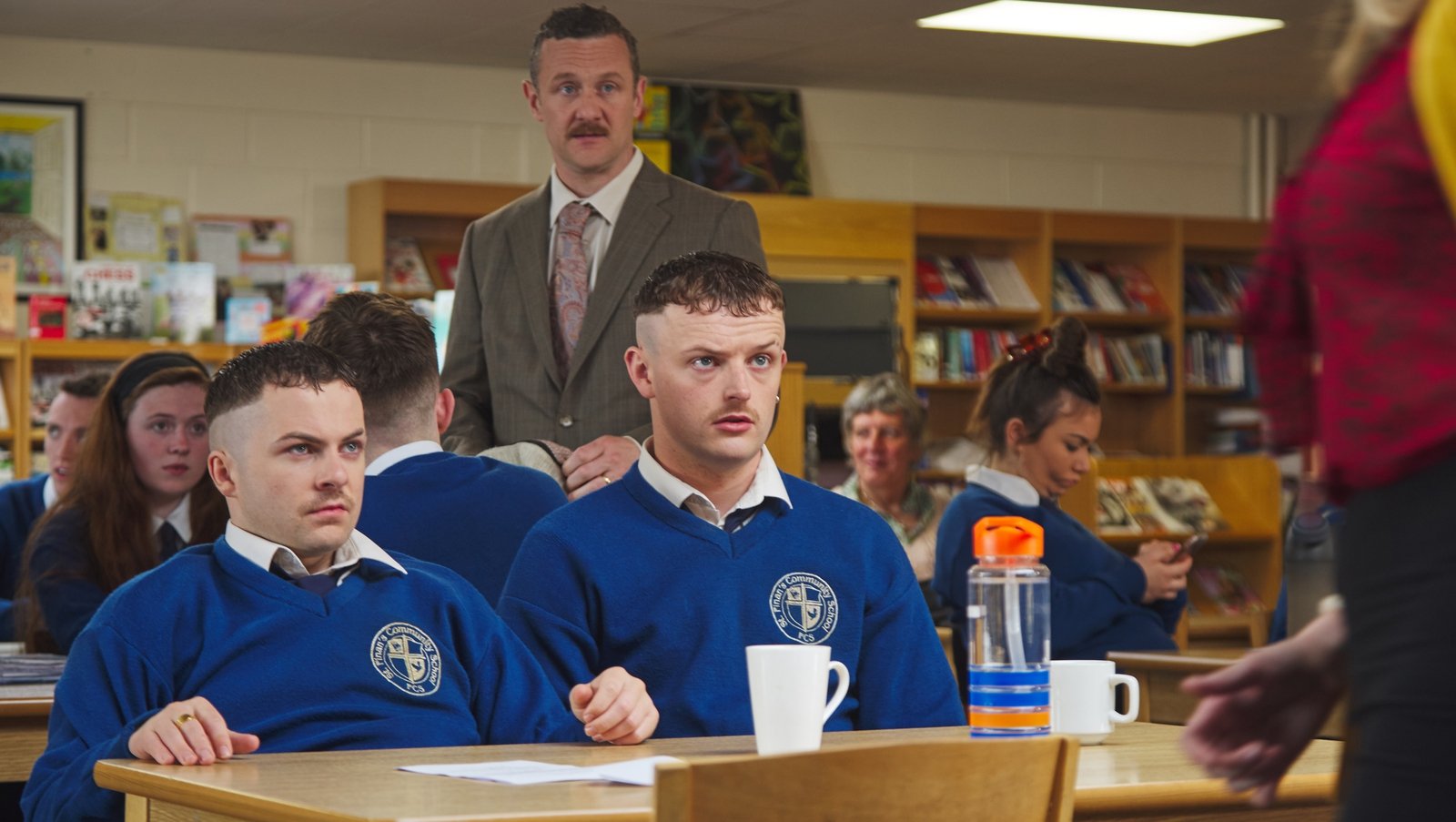“They dropped me on the ground and kept kicking me and punching me,” Ted Jonas, an American lawyer who lives in the Georgian capital Tbilisi, told RTÉ News.
A group of ten to 15 riot police, he said, punched and kicked him last Tuesday night as he protested against the government’s proposed foreign influence bill outside the Georgian parliament building.
The draft legislation will require organisations that receive more than 20% of their funding from abroad to register as pursuing the “interests of a foreign power”.
Critics have said that the ‘foreign influence’ bill is authoritarian and inspired by Russia’s foreign agent law, and will stifle debate given that it will apply to media groups and NGOs.
On Tuesday night, amid chants of “Russians” and “traitors” by protesters, riot police stormed the crowd.
“The blows just kept coming. So they finally walked away and I sat up on the pavement, all beaten,” said Mr Jonas, who has lived in Georgia for more than two decades and has dual Georgian and American citizenship.
He estimates that he was punched and kicked at least 20 times by a group of 10 to 15 Georgian riot police.
Other protesters were also beaten.
The leader of Georgia’s pro-western opposition party, the United National Movement (UNM), Levan Khabeishvili, was badly beaten and posted pictures of his bruised face on social media.
Police used water canons to disperse the crowd before the protest fizzled out in the early hours of Wednesday.
More than 60 people were arrested.
Mr Jonas was detained in a police station before being released at 5am the next morning.

That thousands of protesters stood their ground for hours against repeated phalanxes of police charges, tear gas and water cannons, is evidence of the level of opposition from civil society groups towards the ‘foreign influence’ bill.
They believe that the proposed law will derail Georgia’s chances of becoming an EU member state and push Georgia closer to Russia’s sphere of influence.
In December, the European Commission granted Georgia candidate status, which sets the country on a path to starting formal negotiations to join the bloc.
Polls show that between 80-90% of Georgians are in favour of EU membership.
However, the country’s ruling party, Georgian Dream, which has governed since 2012, has maintained a balancing act between applying for EU membership, whilst adopting a more illiberal stance on rule-of-law and social issues.
The ruling party claims the new law would make payments to organisations more transparent.
The spark for Tuesday’s mass protests was a speech in Tbilisi the previous day by Bidzina Ivanishvili, a billionaire businessman who founded Georgian Dream and continues to be the party’s chairman.
Mr Ivanishvili appeared to blame the West, which he referred to vaguely as, the “global war party” for not allowing Georgia to join NATO and the European Union.
He claimed the so-called “global war party” had pushed Georgia into a brief war with Russia in 2008, and that “non-transparent funding” of NGOs was being used to “appoint the authorities of Georgia from abroad”.
In the speech, Mr Ivanishvili also described the presidency of Mikheil Saakashvili, who led Georgia from 2004 to 2012, as a time when Georgians were “governed by a foreign-appointed revolutionary committee”.
Mr Saakashvili was convicted for abuse of power in 2021, charges that his supporters say were politically motivated.
He is serving a six-year sentence and is severely ill in hospital, while still under prison guard.

Georgian Dream has tapped into nationalist sentiment since coming to power in 2012, and presents itself as the guardian of Georgian culture and the country’s Orthodox Church.
On Wednesday, elected representatives in Georgia’s parliament voted 83 votes to 23 to approve a second reading of the ‘foreign influence’ bill, sparking another night of protest outside parliament.
By Thursday evening, even larger crowds had gathered to protest at parliament buildings.
The bill will now go to Georgian President Salome Zourabichvili who will veto it.
She told France 24 in an interview on Wednesday that the bill will “suppress critical voices” and criticised Mr Ivanishvili’s speech earlier this week as “a declaration of war” against Georgia’s Western partners.
But the size of Georgian Dream’s majority in parliament means the party can overturn the president’s veto at a third reading and the bill could become law within the next month.
Brawls have erupted inside parliament too over the past few weeks between government and opposition MPs during debates over the bill. An election is due to be held in October.
After the protests this week, European Commission President Ursula von der Leyen posted on X that “Georgia is at a crossroads. It should stay the course on the road to Europe.”
Additional reporting by Reuters
Source link
 TG4 TV PC to TV
TG4 TV PC to TV
